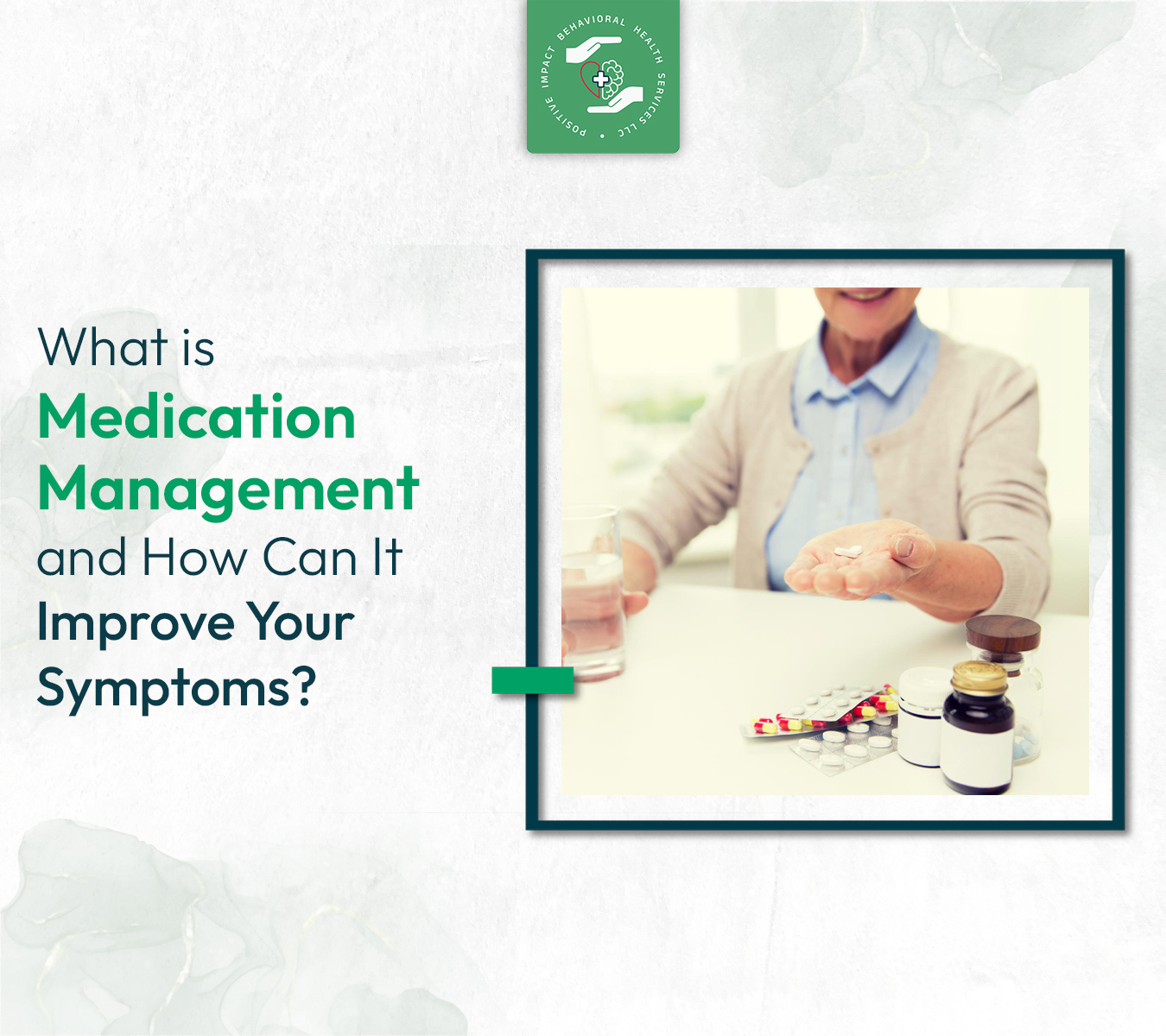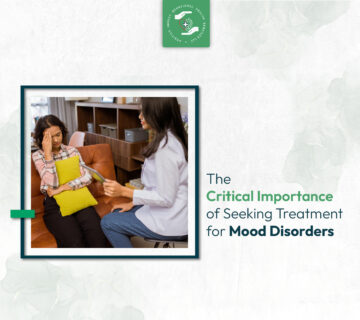Medication management means using medicine in a careful, straightforward way to help with mental health symptoms. It is more than getting a pill. It is checking how you feel, picking the right medicine, watching for side effects, and making changes when needed. At Positive Impact Behavioral Health, the focus is on treating symptoms with medicine while also recognizing how therapy can help.
What Medication Management Means
Medication management is a plan. The plan starts with a talk. The clinician asks about your symptoms, your health, and what you want to feel like. Then they choose a medicine that fits your needs. After that, they watch how the medicine works. They check if it helps, if it causes problems, and if the dose needs to change.
How Medicine Can Help
Medicine can make significant changes in how you feel. It can:
- Lower heavy sadness and worry.
- Help you sleep better.
- Reduce racing thoughts or panic.
- Improve focus for ADHD.
- Calm psychosis or extreme mood swings.
Medicine can act faster than other steps. For many people, it makes daily life easier. When symptoms fall, a person can think more clearly and do things that help their recovery.
What to Expect In Medication Visits
Visits are simple and direct. Each visit usually includes:
- A short check of how you are doing.
- Questions about side effects.
- A review of any other medicines you take.
- A plan for the next step.
Visits are short and regular. The goal is to keep you safe and comfortable while the medicine does its work.
The Role of Therapy
Therapy and medicine are different tools. Medicine helps the body and brain work better. Therapy helps skills, habits, and coping. For many people, using both is best. At Positive Impact Behavioral Health, the main work is medication management. Therapy is mentioned and can be part of care, but the focus stays on treating the symptoms with medicine when that is the right choice.
Conditions Medicine Often Helps
Medicine is used for many kinds of problems, such as:
- Depression
- Anxiety
- Mood disorders
- ADHD
- Sleep problems
- Trauma and PTSD
- Psychosis and schizophrenia
- Substance use concerns
Each condition has its own kinds of medicines. A clinician chooses based on symptoms, past treatment, and health history.
Safety and Monitoring
Safety is a top part of medication management. That means:
- Watching for side effects.
- Checking medicine interactions.
- Testing when needed, like blood work.
- Slowing changes if side effects appear.
Good monitoring keeps medicine working and lowers risks.
Meet Dr Martins Akhibi
Dr Martins Akhibi, DNP, PMHNP-BC, is a board-certified psychiatric nurse practitioner. He has many years of experience treating anxiety, depression, mood disorders, ADHD, trauma, psychosis, and substance concerns. He uses careful listening to build trust. His work blends medication management with practical ways to help people feel better. His goal is to walk alongside people so they do not have to manage their health alone.
When Medicine May Not Be Enough
Medicine is powerful, but it is one part of care. Some people do best when medicine is combined with therapy, healthy sleep, steady routines, and social support. If symptoms are complex, a clinician may suggest other supports along with medicine.
How to Learn More
If you want to read about services or book an appointment, you can visit the clinic site: Positive Impact Behavioral Health.
This link is a simple way to find more details about conditions, services, and how visits work.
Final Notes
Medication management is about steady steps. It is checking, listening, and adjusting until the symptoms ease. The focus at Positive Impact Behavioral Health is to treat symptoms with thoughtful medicine and careful follow-up. The key method for relief is medication management, but therapy can help, too. If you have questions, a quick visit can show you what the next step is.
FAQs
Q. Will the medicine work right away?
Some medicines help fast. Others take weeks before you feel better. The clinician will explain what to expect.
Q. Will I need the medicine forever?
Some people take medicine for a short time. Others take it longer. The plan is constantly reviewed and changed when needed.
Q. Can medicine be changed?
Yes. If a medicine doesn’t help or creates problems, the clinician can change the dose or try a different one.




